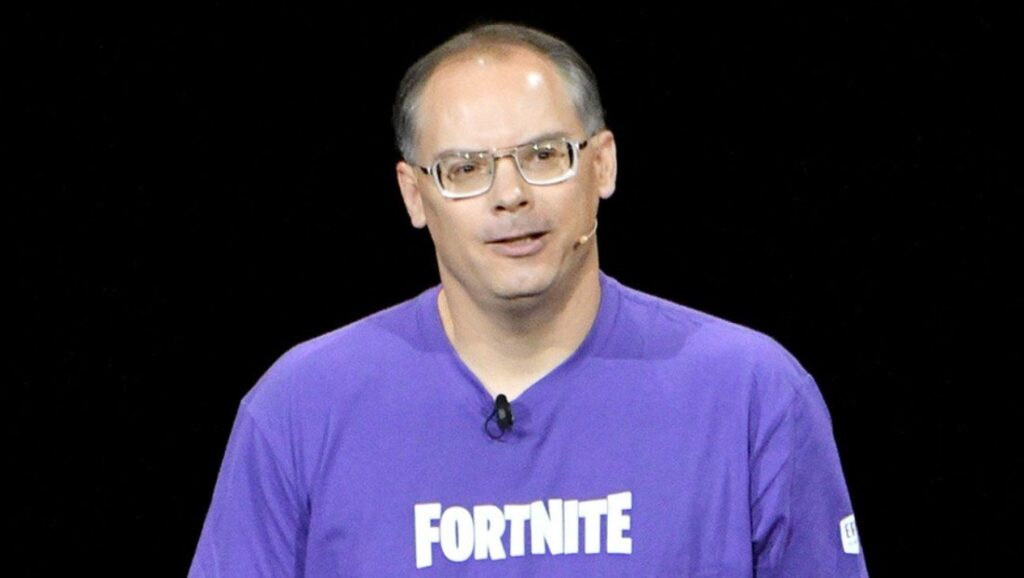
Epic Games has become one of the most disruptive companies in the business. From Fortnite’s incredible boom and the studio’s big push for cross-platform play to the company’s continuous fight to bring developers higher revenue shares (even on mobile), Epic has had one of the greatest impacts on the games landscape in the last year than any other organization.
The Epic Games Store in particular represents the first legitimate challenge to Valve’s PC dominance, offering developers an attractive alternative that promises an 88/12 revenue split, a guaranteed minimum on sales, and a less crowded storefront that can aid in discoverability. Steam, which has been around since 2003, still has the lion’s share of the market with one billion accounts and 90 million active users (as of April 2019), but Epic Games Store shared today that it’s attracted 108 million PC customers who have generated $680 million in revenue. That’s nothing to sneeze at, given that EGS is only one year old.
“On the metrics of account growth and revenue, we are ahead of our early expectations,” Steve Allison, Epic Games Store GM, remarked to GameDaily.
Epic Games Store has been leveraging its marketing muscle by giving away a free game to its users on a weekly basis. The company said today that it intends to continue the weekly freebies throughout 2020. Epic CEO Tim Sweeney explained that the free games adoption did factor into the metrics for EGS.
“108M is the total number of Epic Games accounts which have specifically obtained the PC version of at least one product, whether free or paid,” he told us. “This is out of 300M total Epic accounts across all platforms including console and mobile. Epic Games Store third-party game revenue in 2019 is roughly 60% higher than our initial forecast at launch, and the pace of free game installs is several times higher than we originally expected. We are very happy with the outcome and grateful to our partners and customers.”
Developers who agree to have their game given away on the Epic Games Store might lose out on some revenue for a brief period, but Epic makes sure to compensate those studios participating. Plus, there’s the benefit that added exposure of being the free game of the week brings to a developer.
“Epic pays each developer or publisher for the opportunity to distribute their game free for a week. The paid amounts are negotiated to ensure that the developer gains more from the Epic payment and resulting new customer influx than they would expect to lose in paid sales as the result of the free week. Some of the free launches have been timed in partnership with the developers to raise awareness of their game in advance of their new product launch,” Sweeney stressed to GameDaily.
As the Epic Games Store started to build momentum early on, Epic came under fire from some players for its strategy to snag PC exclusives. Sweeney commented last June that he sees exclusives as “the only strategy that will change the 70/30 status quo at a large enough scale to permanently affect the whole game industry.”
Epic has no plans to alter that strategy now, as it’s proven quite effective thus far. Allison noted that exclusives currently account for 90% of all new EGS releases to date and “have driven the majority of revenue so far,” but EGS has also seen good performances from non-exclusive titles launched across multiple storefronts.
Sweeney continued, “Exclusives have been critical in gaining momentum in the presence of a competitor that began 2019 with more than 90% market share. Securing exclusives for Epic means we can significantly assist developers with product funding and invest in marketing and awareness knowing that these efforts bring in new customers to our store, rather than just sending more business to the incumbent.
“Exclusive products are the primary way for companies entering new markets to gain new momentum against entrenched competitors. [You can] compare [our approach] to the successful launch of Disney+ last year, going head to head with Netflix, Amazon, and others.”
There’s also a big difference between being an exclusive on EGS versus a particular platform. A Nintendo Switch exclusive cannot be played by an Xbox owner, but any Steam user on a PC can simply download the EGS client to play. It’s not market fragmentation at all.
“I can understand the frustration of having to buy different consoles to play the games you want, but there’s no extra cost to use EGS,” Ben Wasser of Glumberland (Ooblets) stated. “The store and launcher just require a free signup. It’s not like having to pay for HBO and Netflix and Hulu to watch all the shows you want, it’s more like just having to press a button on your remote to change between free TV channels.”
Epic promises that it has “tons” of exclusives coming to EGS this year. The company has a long way to go before it can come even close to matching Valve’s Steam, but then again, Epic doesn’t need to. Between its Unreal Engine business, and the incredible success and cultural touchstone Fortnite has become, Epic is able to make savvy business decisions from a position of strength. It’s not relying on EGS to keep the lights on. If Epic keeps treating developers fairly and securing more exclusive deals, EGS will have nowhere to go but up.

 GameDaily.biz © 2025 | All Rights Reserved.
GameDaily.biz © 2025 | All Rights Reserved.